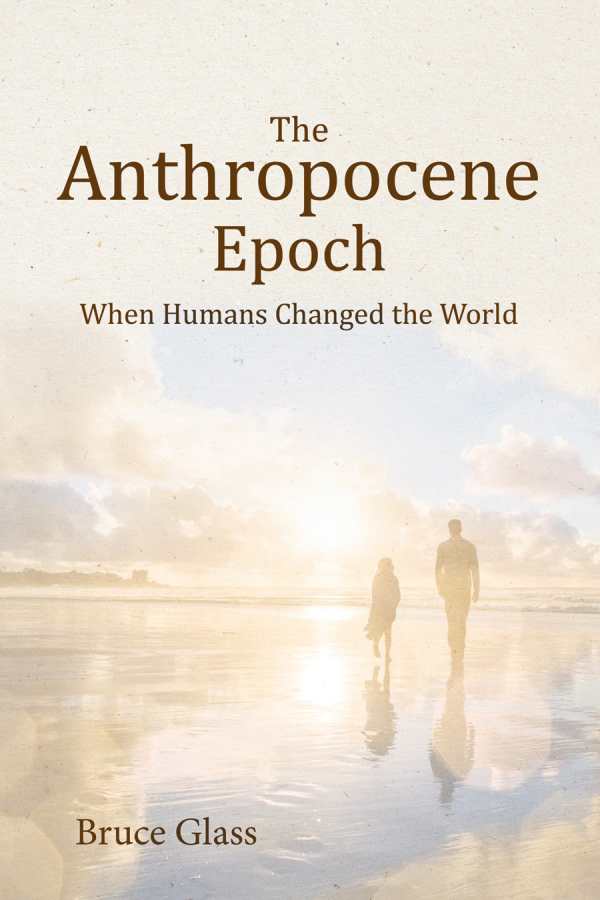The Anthropocene Epoch
When Humans Changed the World
Only human beings have the power to determine if their period on Earth will have dark implications or light ones, warns this urgent ecological history text.
Bruce Glass’s ecological history The Anthropocene Epoch concerns humanity’s impact on the world.
The book opens with a brief history of Earth, showing that the planet has undergone tremendous transformations over time. Different epochs are named to describe these changes; Glass argues that, because of humanity’s influence over the last two hundred years, the current era should be called the Anthropocene Epoch. Indeed, human beings have made immense changes in a brief amount of time, with the population exploding and affecting the survival of other animal and plant species, the climate, and the environment.
Humans are a clear problem in the book, which says that they can also be the solution to global problems. Still, Glass also warns that, while human beings have the power to do amazing things to protect Earth’s insecure and dwindling resources, there seems to be a cultural push to narrow the diversity of people’s thoughts and perspectives. This could have a critical impact on the planet—and on humanity’s future.
Engrossing but startling, the book encapsulates millions of years of geological and natural history. It covers western civilization, the evolution of science, and recent events in a short space, aiming to show that the world is at terrible risk. Its eight chapters, among other topics, concern overpopulation, climate change, and extinction. It is accessible, covering these concepts in layperson’s terms.
A sense of economy dominates the book’s coverage, which switches between summarizing points and going into detail on specific concepts to make its case. Other writers and thinkers are drawn upon to support its case, too, while the book’s comprehensive footnotes and endnotes make it easier to follow up on topics like animal extinction and carbon footprints.
The book’s affable tone increases its accessibility. For example, Glass points out that modern humans consume so much poultry that an alternate name for the era could be the Age of Chicken. Despite such humor, though, the book is ominous in recounting how animals have been endangered and driven to extinction because of human cruelty; and the rise of science deniers, Glass says, will lead to inevitably greater damage.
The urgent ecological history text The Anthropocene Epoch shows that, while the age of humans may represent a mere moment on Earth’s grand timeline, only humans have the power to determine if this period will be a dark time or a light one.
Reviewed by
Katerie Prior
Disclosure: This article is not an endorsement, but a review. The publisher of this book provided free copies of the book and paid a small fee to have their book reviewed by a professional reviewer. Foreword Reviews and Clarion Reviews make no guarantee that the publisher will receive a positive review. Foreword Magazine, Inc. is disclosing this in accordance with the Federal Trade Commission’s 16 CFR, Part 255.

